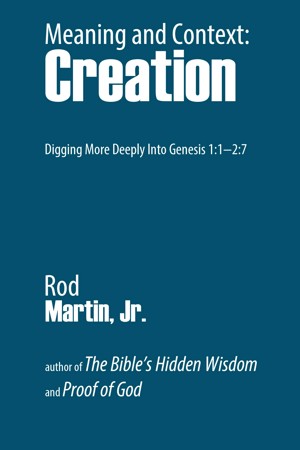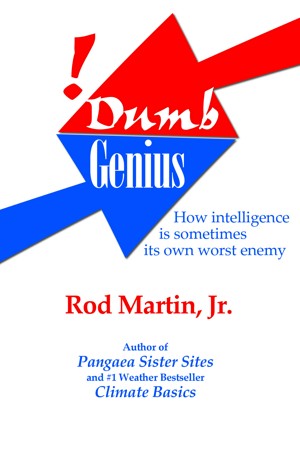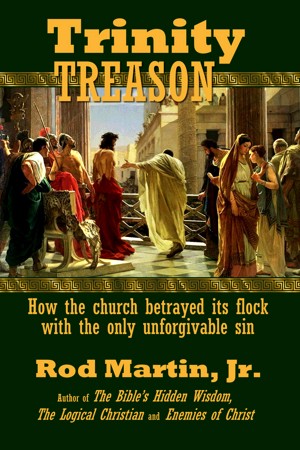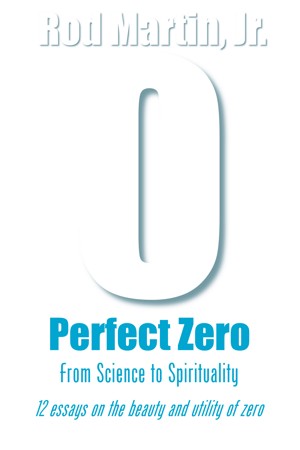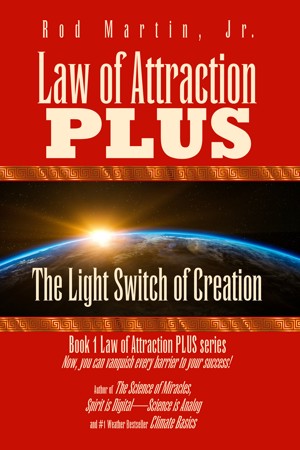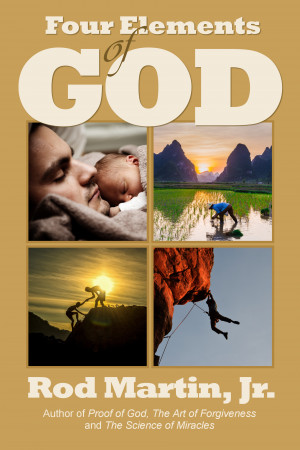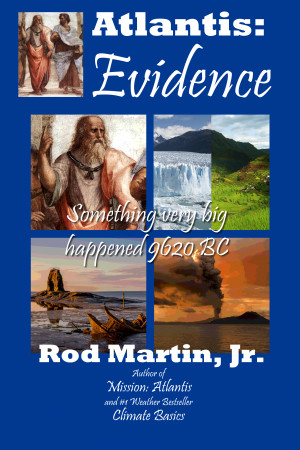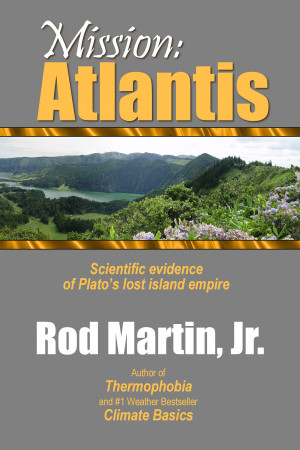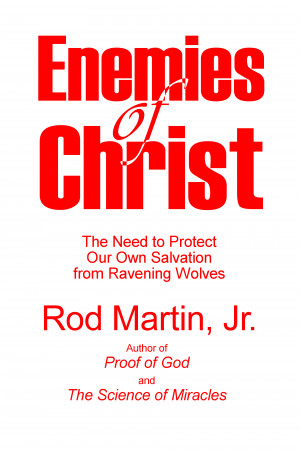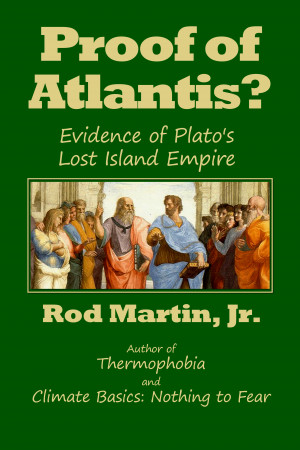Share with Friends
Interview with Rod Martin, Jr
Published 2017-01-20.
Smashwords Interviews are created by the profiled author or publisher.
Latest books by This Author
Meaning and Context: Creation
by Rod Martin, Jr
Price:
$3.99 USD.
Words: 19,490.
Language:
English.
Published: February 28, 2022
by
Tharsis Highlands.
Categories:
Nonfiction » Religion & Spirituality » Biblical Commentary / Old Testament, Nonfiction » Children's Books » Religion / Biblical Commentaries & Interpretation
Some of the most puzzling verses in the Bible are to be found at the beginning of Genesis. Meaning and Context: Creation tackles Genesis 1 through 2:7.
Dumb Genius
by Rod Martin, Jr
Price:
Free!
Words: 39,830.
Language:
English.
Published: February 17, 2022
by
Tharsis Highlands.
Categories:
Nonfiction » History » Social history, Nonfiction » Psychology » Personality
Subtitle: How Intelligence is sometimes its own worst enemy. Some people with extremely high IQs have done some incredibly stupid things. But there is a cure for their Dumb Genius syndrome. And their intelligence does not always have to work against itself.
Trinity Treason
by Rod Martin, Jr
Price:
$4.99 USD.
Words: 43,320.
Language:
English.
Published: January 25, 2022
by
Tharsis Highlands.
Categories:
Nonfiction » Religion & Spirituality » Christian Theology / General, Nonfiction » Religion & Spirituality » Christian Church / History
How the church betrayed its flock with the only unforgivable sin. Why can God and Jesus forgive us for blaspheming against them, but the Holy Spirit cannot forgive us? The answer is as astounding as it is simple, and it reveals the “trinity”—a term which does not appear anywhere in the Bible—as a source of the only unforgivable sin.
Perfect Zero
by Rod Martin, Jr
Price:
$5.99 USD.
Words: 36,750.
Language:
English.
Published: October 25, 2021
by
Tharsis Highlands.
Categories:
Nonfiction » Religion & Spirituality » Essays, Nonfiction » Science & Nature » Philosophy of Science
12 essays on the beauty and utility of zero. “Similar to the slick vacuum of space, which has zero mass and zero density, zero remains deceptively simple. Behind the mask of nothingness there lurks a strange beast full of mystery and wonder.”—Perfect Zero, Introduction. Meditation, government, miracles, religion, mathematics, science, entropy, law of attraction and more.
Law of Attraction Plus
by Rod Martin, Jr
Price:
$9.99 USD.
Words: 30,340.
Language:
English.
Published: September 29, 2021
by
Tharsis Highlands.
Categories:
Nonfiction » Self-improvement » Personal Growth / Success, Nonfiction » New Age » Supernatural
Law of Attraction made easy! And now, you can vanquish every barrier to your success! Filled with Practical Applications that build your strength of Attraction. This Light Switch of creation can turn on what you want and turn off what you don’t.
Four Elements of God
by Rod Martin, Jr
Price:
$5.99 USD.
Words: 22,470.
Language:
English.
Published: July 22, 2020
by
Tharsis Highlands.
Categories:
Nonfiction » Religion & Spirituality » Inspirational, Nonfiction » Religion & Spirituality » Theology
After scientific experiments on the nature of miracles, the author discovered God’s 4 elements which made those miracles possible. This book explores the scriptural and logical basis of this discovery.
Atlantis: Evidence
by Rod Martin, Jr
Series: Mission: Atlantis.
Price:
$0.99 USD.
Words: 11,420.
Language:
English.
Published: June 11, 2020
by
Tharsis Highlands.
Categories:
Nonfiction » History » Civilization, Nonfiction » Science & Nature » Geology
The trouble with evidence is that we can’t see it if we know it doesn’t exist. Such certainty blinds us, especially on controversial topics like Atlantis. Then, when someone discovers three world-changing events that all occur when Plato’s Atlantis disappeared, scientists are caught with their pants down.
Mission: Atlantis
by Rod Martin, Jr
Series: Mission: Atlantis.
Price:
Free!
Words: 190,850.
Language:
English.
Published: April 30, 2020
by
Tharsis Highlands.
Categories:
Nonfiction » Science & Nature » Geology, Nonfiction » History » Civilization
Scientists go crazy facing controversy. James Gleick said, “Shallow ideas can be assimilated; ideas that require people to reorganize their picture of the world provoke hostility.” Guess what? Scientists’ heads are going to explode. For one, we have 3 pieces of evidence of an Atlantis-like event occurring right when Plato said Atlantis was destroyed. This could be our “smoking gun.”
Enemies of Christ
by Rod Martin, Jr
Price:
$3.99 USD.
Words: 27,050.
Language:
English.
Published: April 20, 2019
by
Tharsis Highlands.
Categories:
Nonfiction » Religion & Spirituality » Biblical Commentary / General, Nonfiction » Religion & Spirituality » Biblical Criticism & Interpretation / General
Jesus warned us about this. He told us that there would be some who would appear and sound pleasant, but who would really be wolves in sheep’s clothing. These are the enemies of Christ.
Proof of Atlantis?
by Rod Martin, Jr
Series: Mission: Atlantis.
Price:
$3.99 USD.
Words: 21,690.
Language:
English.
Published: February 24, 2019
by
Tharsis Highlands.
Categories:
Nonfiction » History » Civilization, Nonfiction » Science & Nature » Geology
According to Plato, a great island empire was swallowed whole by the sea about 9600 BC. And wouldn’t you know it? We have evidence from 3 different scientific disciplines that point to a major catastrophe 9620 BC.
The facts which tend to support the Atlantis story are numerous and rich with details. And science should never stoop to logical fallacies to dismiss any topic out of hand.

